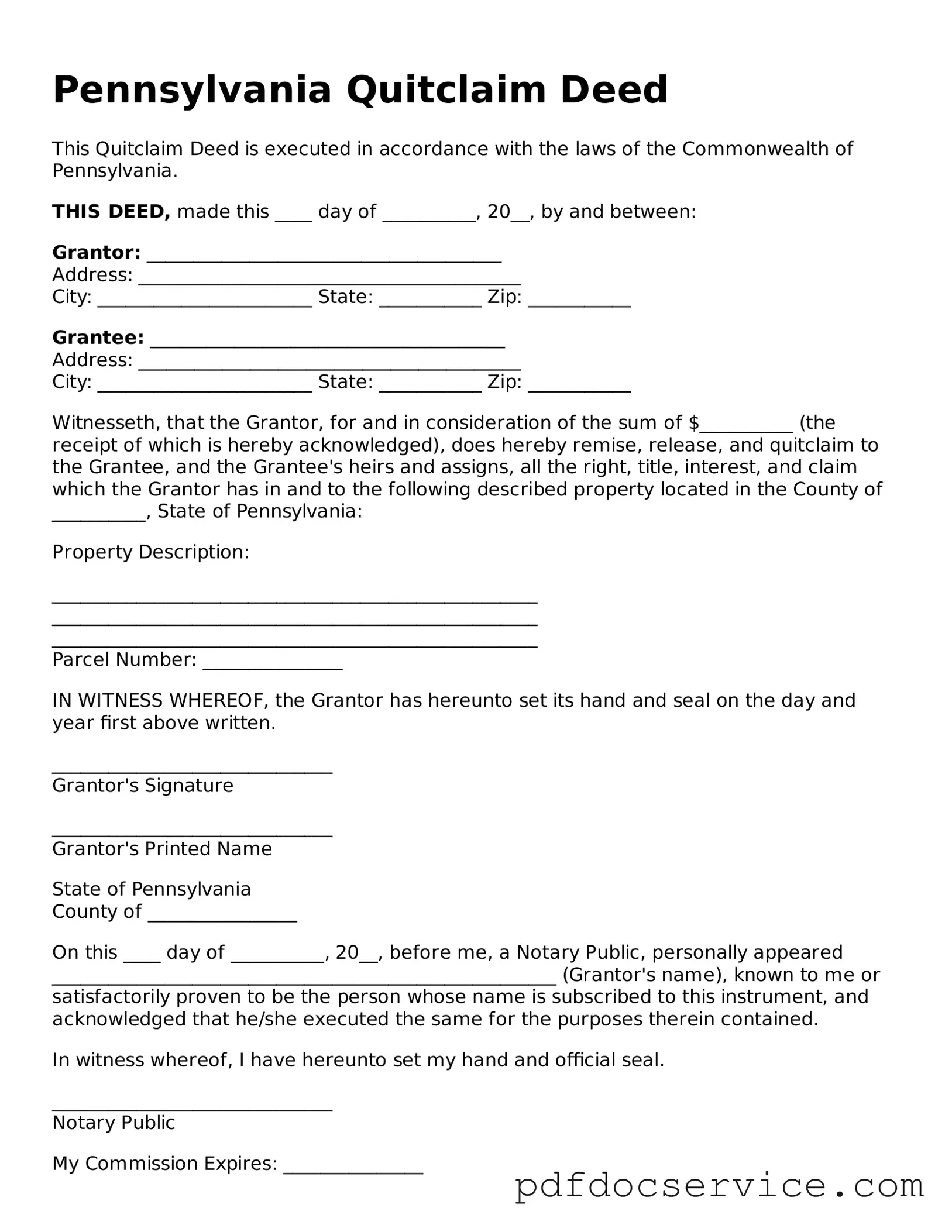Printable Quitclaim Deed Template for Pennsylvania
A Pennsylvania Quitclaim Deed is a legal document used to transfer ownership of real estate from one party to another without any warranties. This form allows the grantor to relinquish any claim to the property, making it a straightforward option for property transfers. Understanding its implications is essential for both the grantor and the grantee.
Open Quitclaim Deed Editor

Printable Quitclaim Deed Template for Pennsylvania
Open Quitclaim Deed Editor

Open Quitclaim Deed Editor
or
Get Quitclaim Deed PDF
Finish the form now and be done
Finish Quitclaim Deed online using simple edit, save, and download steps.